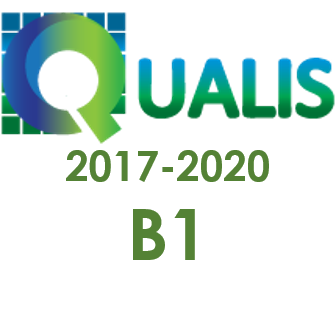The Female and the Mystic as Guinea-Bissau's identity in the poetics of Odete Semedo "NO FUNDO DO CANTO"
DOI:
https://doi.org/10.22481/odeere.v7i1.10364Keywords:
Female, Mystic, Tongue, Identity, Guinea BissauAbstract
The place of women in African culture and traditions, especially of the Bantu peoples, has been a challenge, since on the one hand we have the ancestry that is manifested by the culture and on the other the modernity brought by the West through colonization or interaction with other people. This research has as its object the study of the book “No Fundo do Canto” by Odete Semedo, in order to analyze the representation of the feminine and the mystical as a cultural identity of Guinea-Bissau. It is a qualitative approach research, with a descriptive-exploratory objective and documental procedure. As for the methodological procedures, we identified excerpts from nine poems from the work “No Fundo do Canto” that refers to the feminine and the mystical as marks of the identity of Guinea-Bissau through the meanings constructed through the creole language, in particular. The corpus was analyzed in the light of theorists of the size of Augel (2005), Hall (2006), Semedo (2011), Bâ (1982), Cá and Timbane (2021) and Manuel and Timbane (2018). It was concluded that the female presence is linked to the mystic and refers to female power, as well as demonstrates cultural characteristics of Guinea-Bissau, having the language as a provider of lexical-semantic formations that refer to the cultures of the country.
Downloads
References
AUGEL, Moema Parente. O desafio do escombro: a literatura guineense e a Narração da nação. 2005. 387p. (Tese) Doutorado em Literatura Portuguesa, na especialidade das Literaturas Africanas de Língua Portuguesa). Faculdade de Letras, Universidade Federal do Rio de Janeiro, Rio de Janeiro, 2005.
COUTO, Hildo Honório do; EMBALO, Filomena. Literatura, língua e cultura na Guiné-Bissau: um país da CPLP. Brasília: Editora Thesaurus, nº20, 2010.
DEUS, Paula Lilian Serra; CARVALHO, Wellington Marçal de. A literatura em Guiné- Bissau. LiterÁfricas. 2021. Disponível em: www.letras.ufmg.br/LiterÁfricas/literaturada.
FERREIRA, Manuel. A aventura moderna do português em África. Discursos, Vol. 9, p.139-153, 1995.
GIL, Antônio Carlos. Como elaborar projetos de pesquisa. 4. ed. São Paulo: Atlas, 2007.
INTIPE, Bernardo Alexandre; TIMBANE, Alexandre António. O papel do kriol nas narrativas guineenses: aspectos sócio-históricos. Revista Coralina. Cidade de Goiás, vol.1, n. 2, p. 36-46, jul. 2019.
LEITE, Joaquim Eduardo Bessa da Costa. A literatura guineense: contribuição para a identidade da nação. 2014. (Tese) Doutoramento em Letras, área de Línguas e Literaturas Modernas, especialidade de Literaturas dos Países Africanos de Língua Oficial Portuguesa. Faculdade de Letras, Universidade de Coimbra, Coimbra, 2014.
MANUEL, Cátia; TIMBANE, Alexandre António. O crioulo da guiné-bissau é uma língua de base portuguesa? embate sobre os conceitos. Revista de Letras Juçara, Caxias, Maranhão, v. 02, n. 02, p. 107-126, dez. 2018. https://doi.org/10.18817/rlj.v2i2.1758
MEY, L. Jacob. SIGNORINI, Inês (Org.). Língua(gem) e identidade: elementos para uma discussão no campo aplicado - Campinas, SP: Mercado de Letras; São Paulo: FAPESP, 1998, p 7-89.
NAMONE, Dabana; TIMBANE, Alexandre António. Tensão entre escrita e oralidade no ensino-aprendizagem do português na etnia balanta brassa (Tombali) da Guiné Bissau. Revista Entre parênteses. Alfenas- MG., vol.1, nº7, s.p., p. 2018. https://doi.org/10.32988/rep.v1i7.846
PAIVA, Vera Lúcia Menezes de Oliveira e. Manual de pesquisa em estudos linguísticos. São Paulo: Parábola, s.d.
PRANDI, Reginaldo. Ilustrador Pedro Rafael. Ifá, o Adivinho. São Paulo. Companhia das Letrinhas, 2002.
SEMEDO, Odete Costa. Guiné- Bissau: história, culturas, sociedade e literatura. Belo Horizonte: Nadyala, 2010.
HAMPATÊ-BÂ. Tradição Viva. In: KI- ZERBO, Joseph (Coord.). História Geral da África. S. Paulo: Ática; Paris: UNESCO, V. I. Metodologia e pré-história da África. 1982.
HALL, Stuart. A identidade cultural na pós-modernidade. 11.ed. Tradução de Thomaz Tadeu da Silva, Guraciara Lopes Louro. Rio de Janeiro: Ed. DP e A. 2006.
MALDONADO-TORRES, Nelson. On the coloniality of being: contributions to the development of a concept. Cultural Studies. Taylor & Francis, vol. 21, nº 2 e 3, p.240-270, mar./mai. 2007. https://doi.org/10.1080/09502380601162548
SANTOS, Gersiney. Linguagem e Decolonialidade: discursos e(m) resistência na trilha da aquilombagem crítica. In: RESENDE, Viviane de Melo. (Org.). Decolonizar os estudos críticos do discurso. Campinas, SP: Pontes Editores, 2019.
SANTOS, Ivonete da Silva; TIMBANE, Alexandre António. A identidade linguística brasileira e portuguesa: duas pátrias, uma mesma língua. Curitiba: Appris, 2020.
SEMEDO, Odete Costa. No fundo do canto. Belo Horizonte: Nandyala, 2007.
SILVA, Elen Karla Sousa da.; CARDOSO, Sebastião Marques. Conceição Evaristo: da mulher negra à escritora. Afro-Ásia, vol.59, p. 77-101, 2019. https://doi.org/10.9771/aa.v0i59.22702
SILVA, Elen Karla Sousa da.; CONTE, Daniel. O vaivém das memórias em olhos d’água, de Conceição Evaristo. Fólio-Revista de Letras. Vitória da Conquista. Vol.11, nº2, p.423- 434. jul./dez.2019. https://doi.org/10.22481/folio.v11i2.5527
TRIVIÑOS, Augusto Nibaldo Silva. Introdução à pesquisa em ciências sociais: a pesquisa qualitativa em Educação. São Paulo: Atlas, 1987.
VICENTE, José Gil; TIMBANE, Alexandre António. Políticas públicas e linguísticas: estratégias e desafios no combate às desigualdades sociais em Moçambique. Revista Brasileira de Estudos Africanos.vol.2, nº4, p.114-140, jul./dez.2017. https://doi.org/10.22456/2448-3923.75794
Downloads
Published
Issue
Section
License
Copyright (c) 2022 ODEERE

This work is licensed under a Creative Commons Attribution 4.0 International License.
You are free to:
Share - copy and redistribute the material in any medium or format; Adapt - remix, transform, and build from the material for any purpose, even commercially. This license is acceptable for Free Cultural Works. The licensor cannot revoke these freedoms as long as you follow the terms of the license.
Under the following terms:
Attribution - You must appropriately give credit, provide a link to the license, and indicate if any changes have been made. You may do so in any reasonable way, but not in a way that suggests that you or your use is endorsed by the licensor.
There are no additional restrictions - You cannot apply legal terms or technological measures that legally restrict others to make any use permitted by the license.














